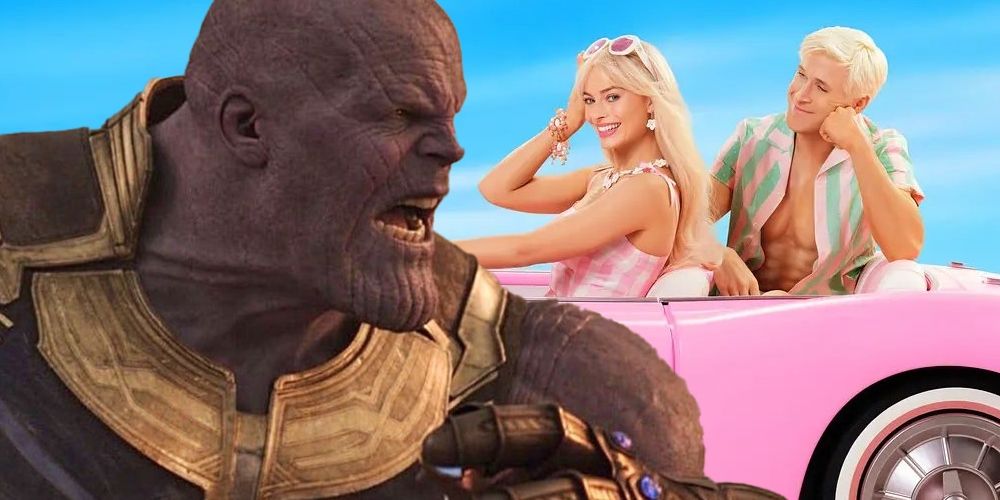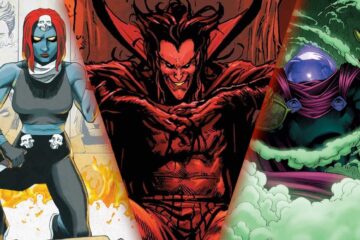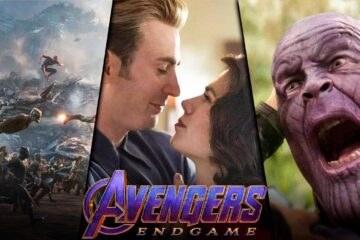The host of an HBO show recently went after Barbie. People with podcasts and cable talk shows know controversy brings an audience, if only briefly. Bill Maher called the film “man-hating,” knowing its defenders would just share his message further. It’s something Maher did in 2018 after comics icon Stan Lee passed away. Instead of a tribute, he attacked his life works, suggesting that comic books and the movies they inspired have made the world a worse place. Twice. Yet, the modern-day shock jock might be sincere because people have been underestimating things they view as “kids’ stuff” for as long as stories have been told.Without getting into spoilers, the idea any part of the Barbie movie is “anti-men” is simply ridiculous. As much as the film is about Barbie’s search for agency, it’s also about how all the various Ken dolls can find their place in whatever world they end up in. No matter how adept director and co-writer Greta Gerwig’s story is, there will always be folks looking down at the film as a “toy movie.” From this perspective, the comments about Barbie fall in line with the comments about Stan Lee. Comic books haven’t been just for kids for nearly half a century. Only preconceived notions are the death of curiosity, so Maher still thinks comics are at the level they were when he was a child in 1960, before the rise of the Marvel era. Stan Lee shares an unenviable quality with other great writers like William Shakespeare or Charles Dickens. The comics he published with Jack Kirby, Steve Ditko and others were easily accessible stories told for as wide an audience as possible. There is an attitude in literature that has extended to cinema that if something is popular, it’s simplistic, if not downright harmful. This, of course, is nonsense.After writing a blog post blaming Stan Lee for the dumbing-down of the American culture, POW Entertainment replied with a missive of their own. They wrote Maher was free to say ” comics are childish and unsophisticated,” noting the same was said “about Dickens, Steinbeck, Melville and even Shakespeare.” Maher dismissed that claim out of hand on his HBO series, but it’s true. From dramatist Robert Greene’s criticism of Shakespeare to G.H. Lewes’ dismissal of Dickens’ literary value after his death. The common thread from the 17th Century playwright to the 21st Century podcaster is the idea if a lot of people like a work of art, it must mean it’s too childish or simplistic to have much value. While art should be challenging at times, dismissing something Stan Lee’s life work misunderstands where its value actually lies.RELATED: Barbie Oppenheimer Is an Actual Person, and She’s Having a Weird Time
The host of an HBO show recently went after Barbie. People with podcasts and cable talk shows know controversy brings an audience, if only briefly. Bill Maher called the film “man-hating,” knowing its defenders would just share his message further. It’s something Maher did in 2018 after comics icon Stan Lee passed away. Instead of a tribute, he attacked his life works, suggesting that comic books and the movies they inspired have made the world a worse place. Twice. Yet, the modern-day shock jock might be sincere because people have been underestimating things they view as “kids’ stuff” for as long as stories have been told.
Without getting into spoilers, the idea any part of the Barbie movie is “anti-men” is simply ridiculous. As much as the film is about Barbie’s search for agency, it’s also about how all the various Ken dolls can find their place in whatever world they end up in. No matter how adept director and co-writer Greta Gerwig’s story is, there will always be folks looking down at the film as a “toy movie.” From this perspective, the comments about Barbie fall in line with the comments about Stan Lee. Comic books haven’t been just for kids for nearly half a century. Only preconceived notions are the death of curiosity, so Maher still thinks comics are at the level they were when he was a child in 1960, before the rise of the Marvel era. Stan Lee shares an unenviable quality with other great writers like William Shakespeare or Charles Dickens. The comics he published with Jack Kirby, Steve Ditko and others were easily accessible stories told for as wide an audience as possible. There is an attitude in literature that has extended to cinema that if something is popular, it’s simplistic, if not downright harmful. This, of course, is nonsense.
After writing a blog post blaming Stan Lee for the dumbing-down of the American culture, POW Entertainment replied with a missive of their own. They wrote Maher was free to say ” comics are childish and unsophisticated,” noting the same was said “about Dickens, Steinbeck, Melville and even Shakespeare.” Maher dismissed that claim out of hand on his HBO series, but it’s true. From dramatist Robert Greene’s criticism of Shakespeare to G.H. Lewes’ dismissal of Dickens’ literary value after his death. The common thread from the 17th Century playwright to the 21st Century podcaster is the idea if a lot of people like a work of art, it must mean it’s too childish or simplistic to have much value. While art should be challenging at times, dismissing something Stan Lee’s life work misunderstands where its value actually lies.
#Bill #Mahers #Barbie #Stan #Lee #Attacks #Highlight #Bigger #Cinema #Problem
Note:- (Not all news on the site expresses the point of view of the site, but we transmit this news automatically and translate it through programmatic technology on the site and not from a human editor. The content is auto-generated from a syndicated feed.))



